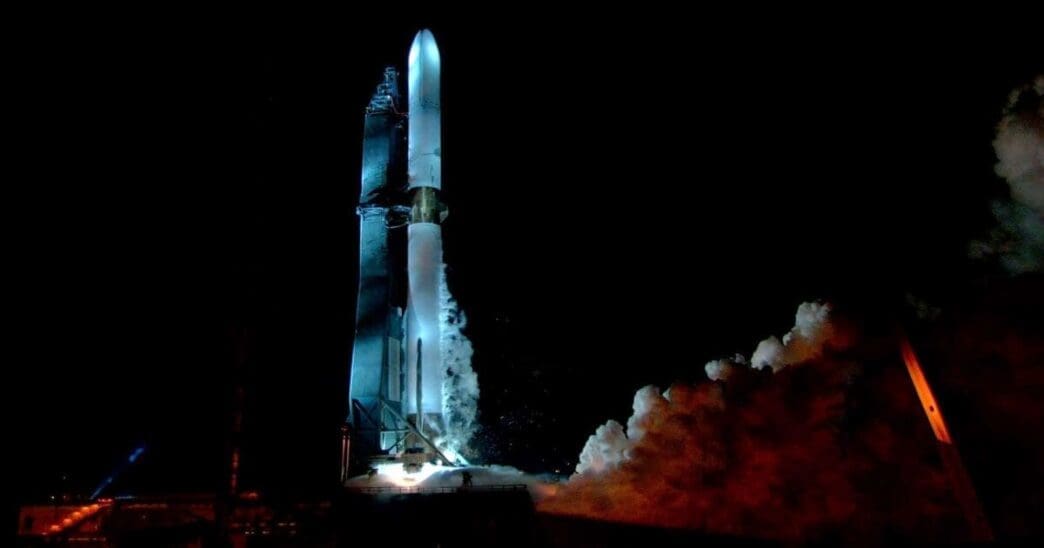On a long-dormant Florida launch pad, a new contender in the space race, the New Glenn rocket, developed by Blue Origin, is preparing for its debut launch. This uncrewed launch marks Blue Origin’s first attempt to break into orbital spaceflight, directly challenging SpaceX’s stronghold on the industry.
Standing at approximately 320 feet, the New Glenn rocket is designed to rival SpaceX’s capabilities, particularly aiming to outperform the Falcon 9. It features a first-stage booster that provides the initial thrust, and an upper stage that includes a cargo bay protected by a nose cone. For this mission, the rocket will house experimental technology.
Blue Origin is aiming to follow in SpaceX’s footsteps by recovering and reusing the first-stage booster, which will attempt to land on a seafaring platform named Jacklyn, after Jeff Bezos’s mother. This approach, akin to SpaceX’s cost-saving strategies, is crucial for Blue Origin as it seeks to reduce launch expenses.
The success of New Glenn is pivotal for Blue Origin’s future plans, which include national security launches, transporting Amazon internet satellites, and supporting the development of a space station in collaboration with commercial partners.
Since its announcement in 2016, New Glenn has faced delays, a common challenge in the aerospace sector, with the initial launch date intended for 2020. The debut flight will feature a ‘demonstrator’ payload to test communications and tracking capabilities, critical for future missions.
Despite the delays, the US Space Force has included Blue Origin in contracts worth $5.6 billion alongside SpaceX and ULA, underlining its potential in the sector. Blue Origin’s large payload fairing on New Glenn supports its vision of moving industrial activities off-planet, a long-term goal of Bezos.
The competitive landscape is ever-shifting; while New Glenn outpowers the Falcon 9, SpaceX’s upcoming Starship plans to further lower space travel costs and increase payload capacity. The space race is not just about reaching orbit but about sustainable and cost-effective space exploration.
In parallel with NASA, Blue Origin initially planned to launch Mars-bound satellites on New Glenn’s first flight, now postponed due to development delays. Instead, the flight will test technology essential for the Blue Ring spacecraft, intended to transport satellites deeper into space.
Reusability, central to lowering launch costs, has been part of Blue Origin’s strategy since its inception. If New Glenn’s first-stage booster successfully lands post-launch, it would mark a significant achievement for Blue Origin, signaling a robust entry into the reusable rocket market.
As New Glenn prepares for its maiden voyage, Blue Origin stands on the brink of a new chapter in space exploration. Whether or not it matches SpaceX’s successes, this initiative signals a commitment to innovation and sustainability in space travel, contributing to the dynamic competition that drives the industry forward.
Source: Abcactionnews ˙ Youtube







